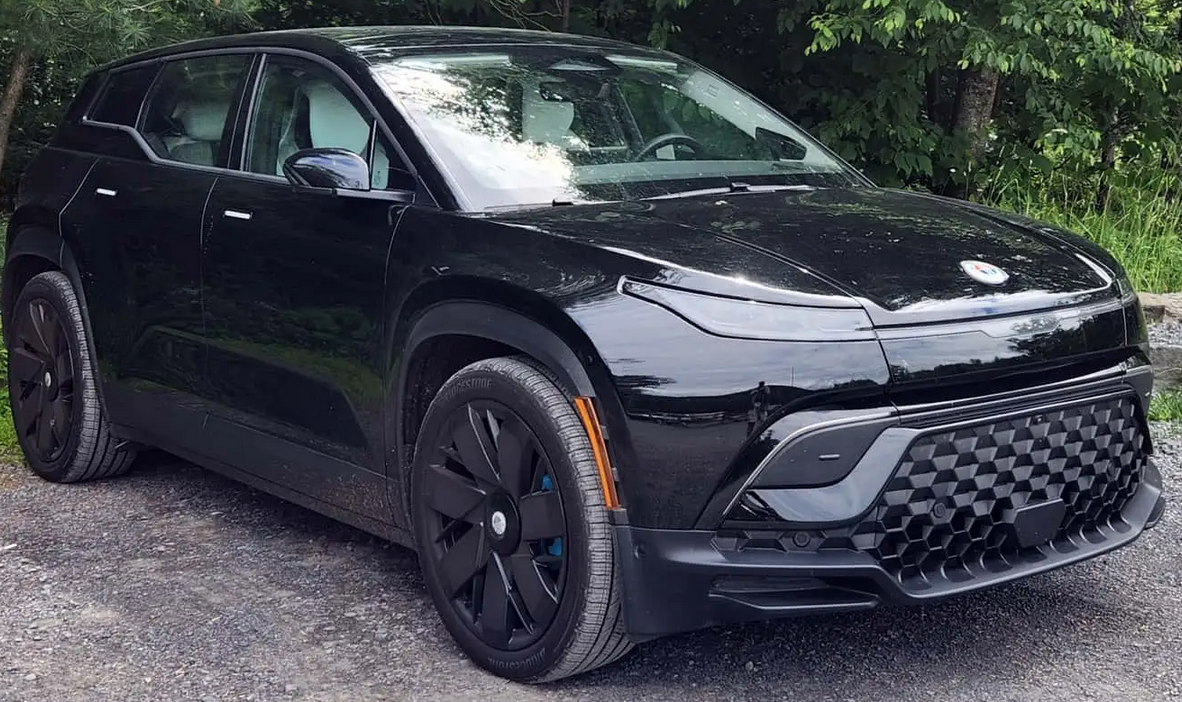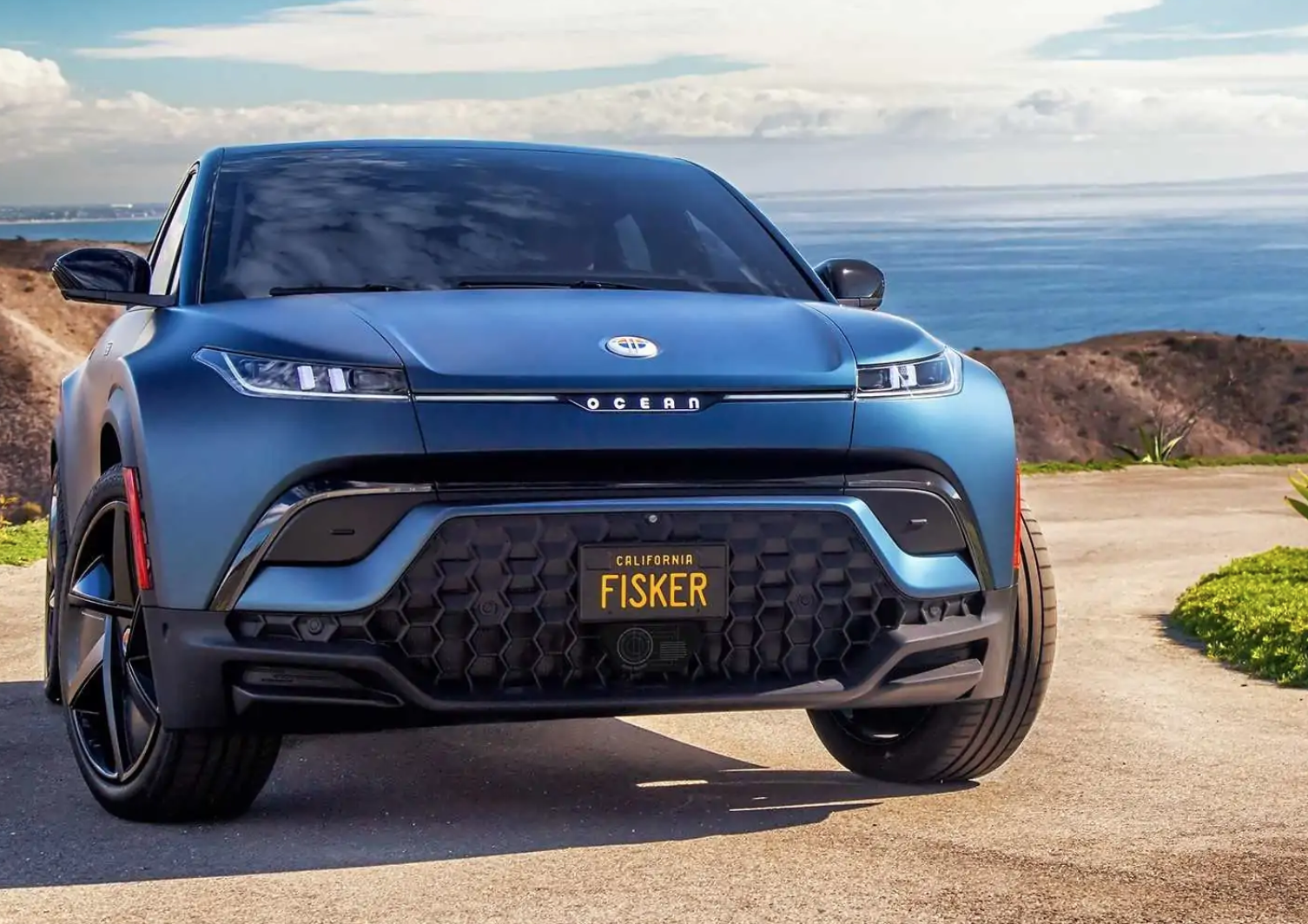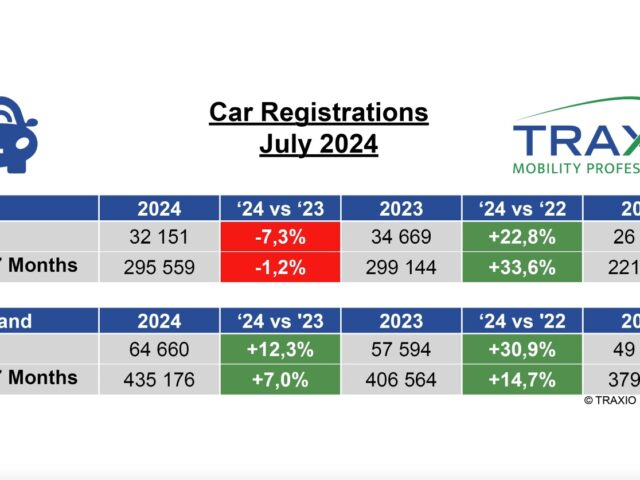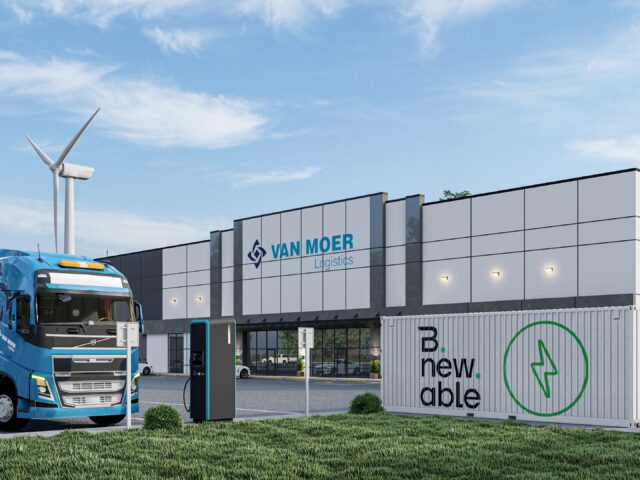The insolvent electric car manufacturer Fisker wants to sell off the stock of its Ocean e-SUV for just 2,500 to 16,500 dollars per vehicle. Meanwhile, existing Ocean owners are seeking legal advice to keep their cars running.
Fisker hopes to sell off its entire inventory of remaining Oceans in a deal that would bring the bankrupt EV start-up up to $46.25 million it can use to pay its debts.
Under the proposed deal, outlined in a Tuesday filing in US bankruptcy court in Delaware, Fisker would sell up to 3,231 Oceans to American Lease, a New York-based firm that leases EVs to ride-hailing drivers. By 2030, all ride-sharing services in New York must switch to purely electric vehicles. For American Lease, the Fisker Ocean would be just the thing at a bargain price.
That is just over 14,300 dollars per vehicle on average. According to the documents submitted by the insolvent company to the court in Delaware, the cheapest but partially damaged examples are expected to change hands for just 2,500 dollars.
For context, the Ocean went on sale in the summer of 2023 and cost anywhere from $38,999 (for a base Sport trim) up to around $70,000 for a fully loaded, limited-edition Ocean One.
Earlier this year, Fisker slashed prices by up to $24,000 to boost sales and stave off bankruptcy. However, struggles, including troublesome vehicles and reported mismanagement, pushed Fisker to file for Chapter 11 bankruptcy protection in June.
What about keeping it running?
Owning and operating vehicles from an insolvent company that may soon be wound up is not without problems, such as the future supply of spare parts.
In the case of modern, software-driven vehicles such as the Fisker Ocean, there is an additional factor: without access to software and critical servers, there is a risk of restrictions on the use of the vehicles for which new customers once paid up to 70,000 dollars. This is because the Ocean will probably not only require mechanical repairs but also work on the software.
The Ocean has also had its fair share of hardware and software problems thus far, including a recent water pump issue. That problem, involving a circuit board assembly prone to failure, triggered Fisker’s fourth stop-sale on June 26th.
The agreement with American Lease contains some answers about long-term Ocean support, at least for American Lease. Regarding the water pump issue, Fisker said it would make the repairs using “resources, facilities, and manpower” provided by American Lease. However, Fisker is out of money and has laid off most of its workforce.
Fisker won’t be honoring the vehicles’ warranties and will have “no obligation of repair or maintenance of the vehicles”. Likewise, Fisker is providing no guarantees about the availability of “vehicle spare parts, or other aftersales goods/services that may impact vehicle operability.”
Owners are particularly concerned about parts, which have already been in extremely short supply. American Lease may plan to scavenge parts from the damaged Oceans it’s buying.
It appears that American Lease plans to lease out these cars, take care of them, and give them a new life as Uber and Lyft vehicles without much help from Fisker. However, a big question remains: Where does this deal leave individual Ocean owners? That’s not clear yet.
FOA, for ‘Fisker Owners Association’
In the US, the ‘Fisker Owners Association’ (FOA) was founded in June. The group has already grown to 2,000 members and hopes to keep their vehicles on the road for as long as possible. The FOA has commissioned a law firm to represent the Ocean owners in Fisker’s insolvency proceedings. Among other things, the aim is to gain access to Fisker’s diagnostic tool.
Owners who paid up to $70,000 for their Oceans during the year it was on sale want to win some guarantees about the availability of spare parts. Even when Fisker was fully operational, those were hard to come by. So they’d like access to whatever parts are lying around and hope to set up a steady supply.
“There’s a whole, long complicated mess just around parts supply,” said José De Bardi, a Fisker owner in the U.K. and one of the FOA’s founders. That’s key if we want to keep cars on the road because things will break.”
Software-defined
As already mentioned, the other big problem area is software. De Bardi said the FOA is fighting for access to Fisker’s vehicle diagnostics tool, which is necessary for identifying issues and making repairs.
The group also wants a solution for the day when Fisker’s cloud infrastructure goes dark. De Bardi: “Strangely enough, Oceans need to connect to that cloud for basic features, including the sunroof and doggy windows (little windows by the liftgate that are a unique Ocean feature), to function. We’re not expecting these cars to stream Netflix in twenty years, but in ten years, you should still be able to open your sunroof.”
The FOA, which includes many technically inclined owners, is also interested in striking licensing deals to maintain or improve certain parts of the Ocean’s software over time. De Bardi himself is the CTO of a technology company.
As Fisker will let American Lease access proprietary source code and software necessary for maintaining and improving Oceans, De Bardi hopes the FOA could gain similar access levels.
If they succeed, De Bardi concluded, the FOA’s situation could become an example of consumer rights in a digital age, when even a $70,000 car can lose software-based features in the blink of an eye.
“Should a manufacturer even be able to stop you opening your sunroof if they feel like their servers don’t want to work one day, let alone bankruptcy?” De Bardi asked. “If it all went our way and we achieved our stretch goals, it would be an incredible landmark case.”





Comments
Ready to join the conversation?
You must be an active subscriber to leave a comment.
Subscribe Today